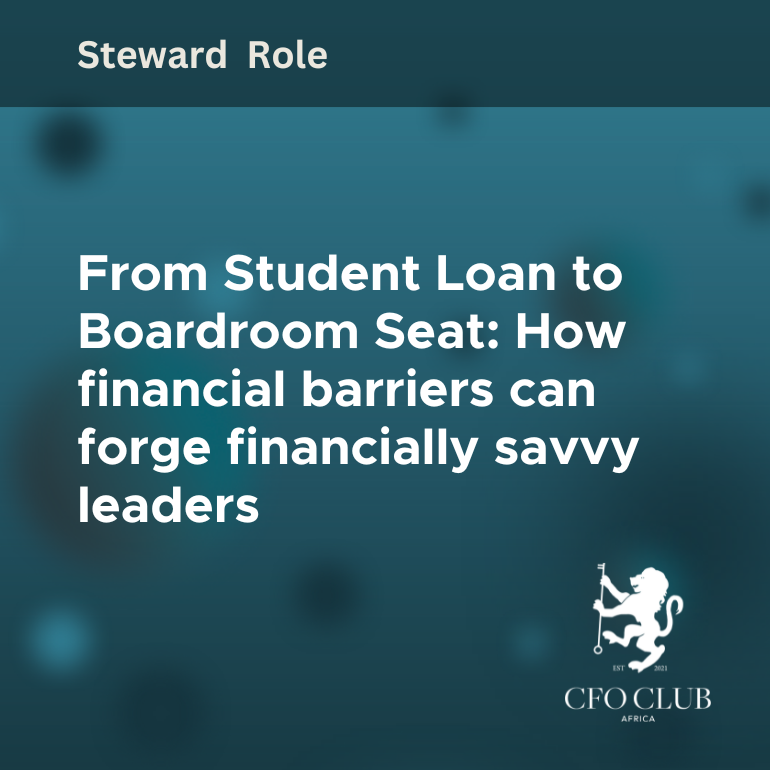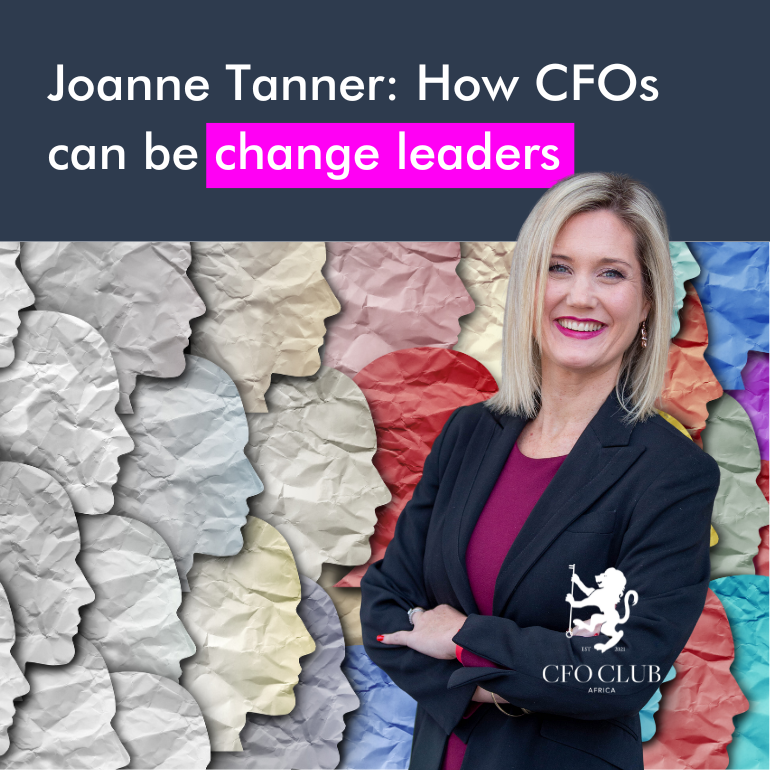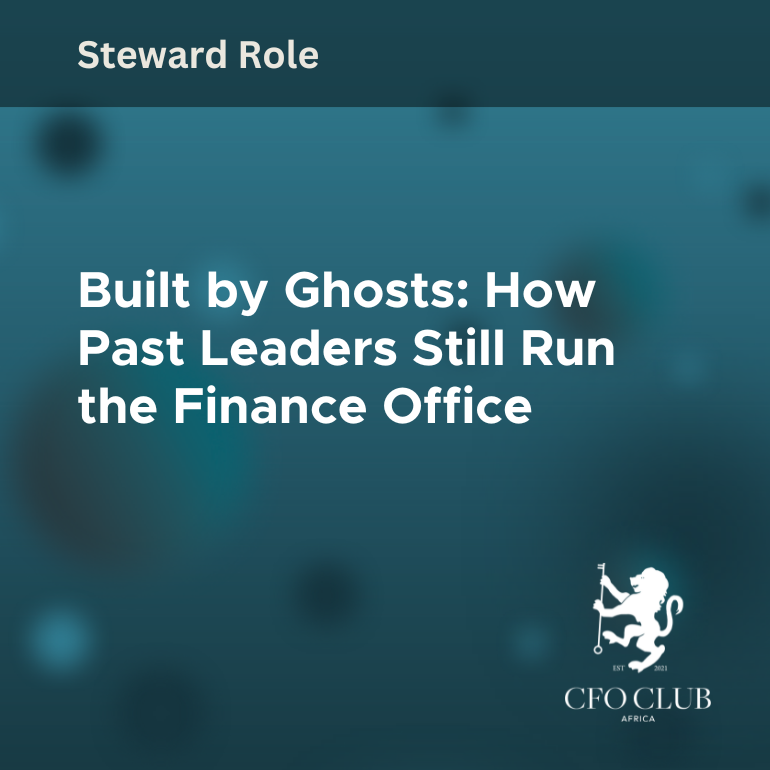From Student Loan to Boardroom Seat: How financial barriers can forge financially savvy leaders
From Student Loan to Boardroom Seat: How financial barriers can forge financially savvy leaders
When we picture a Chief Financial Officer, we often think of someone who has always been good with numbers, someone who climbed the corporate ladder through careful career choices and smart strategic moves. What we often forget is that some of the most financially sharp leaders did not start life with corporate suits or corner offices. They started with debt.
For many CFOs, the early years were not about mergers, acquisitions or strategic investment portfolios. They were about working two jobs, managing scarce resources and learning, sometimes painfully, how money really works. There is a strong argument that starting out with financial barriers, such as a student loan, can produce leaders who understand finance on a deeper and more human level than those who never had to worry about how to pay for their education.
Why financial struggle can be an advantage
It might sound strange or even controversial to suggest that debt and financial barriers can be a career advantage. In corporate circles, we tend to celebrate early financial security as the ideal starting point. But when you grow up or start your career under financial pressure, you are forced to learn financial discipline early.
A student loan is not just a debt. It is a crash course in:
- Cash flow management. You learn exactly when money is coming in and going out.
- Interest rate impact. You experience in real terms how borrowing costs work.
- Opportunity cost. You discover that every rand spent on a luxury is a rand that could have gone toward reducing interest-bearing debt.
When you have lived those realities, you develop instincts that no textbook or MBA can fully teach. As a CFO, those instincts are invaluable.
CFO decisions start to look different
Leaders who have worked their way up from financial constraint often approach decision-making differently. They tend to:
- Scrutinise every cost because they have lived the pain of waste.
- Be realistic about repayment schedules and the burden of debt on a business.
- Understand the psychology of financial stress and how it affects employees and customers.
This perspective can lead to more sustainable strategies. A CFO who has lived under debt may think twice before recommending a high-leverage capital structure, even when the numbers look attractive on paper. They understand that repayment obligations do not care about market downturns, and they plan for resilience, not just growth.
Risk management with a personal lens
Many CFOs who started their careers with financial debt are more risk-aware, but not risk-averse. They know that risk cannot be eliminated. Investment, expansion and innovation are still essential. However, they have a finely tuned sense of what counts as acceptable risk.
This comes from years of calculating whether to take a part-time job or focus on studies, whether to put extra funds toward debt repayment or invest in skills, whether to accept a higher-paying role that might not align perfectly with long-term goals. Every choice had a financial trade-off.
When these leaders sit in the boardroom, they bring that same thought process. They do not simply tick boxes on a risk register. They analyse how risk interacts with human behaviour, cash flow strain and market cycles.
The controversial part: privilege versus preparedness
Here is where this discussion gets uncomfortable. In many boardrooms, the path to CFO is still easier for those who start life with fewer financial obstacles. They can afford unpaid internships, elite business schools and relocation for career opportunities without worrying about debt repayments.
However, this privilege can sometimes come with a blind spot. If you have never had to balance a loan repayment against rent, or choose between attending a conference and fixing your car, you may approach company finances with less urgency around cash flow discipline. You may see liquidity as a line on a spreadsheet rather than a lifeline.
On the other hand, CFOs who have overcome financial barriers often have a stronger real economy mindset. They understand the downstream effect of every financial policy on employees, suppliers and customers. They know that access to credit is not equal and that a late payment from a big customer can have devastating effects on small suppliers.
Financial literacy from necessity
Some of the most practical financial skills come from having to manage personal debt. You learn:
- How compound interest can work for you and against you.
- The importance of paying yourself first, even if it is just a small amount.
- Why tracking and forecasting are essential if you want to stay solvent.
These skills translate directly to corporate finance. A CFO who learned to budget on a modest salary can often spot unnecessary complexity or over-optimistic projections faster than someone who has only managed corporate budgets.
The psychological edge
Money is not just numbers. It is emotional. Financial strain builds resilience, patience and negotiation skills. If you have ever had to negotiate a lower interest rate with a bank to stay afloat, you are better prepared to negotiate with lenders, suppliers or shareholders.
It also builds empathy. A CFO who remembers what it felt like to get a debt reminder call is often more willing to support fair payment terms for suppliers or to invest in financial wellness programmes for staff. This is not charity. It is smart business. Financially healthy employees are more productive, loyal and less likely to leave.
How CFOs can use their own story
If you are a CFO who worked your way up from financial barriers, you have a leadership asset that should not be hidden. Your story can inspire emerging leaders in your organisation. It can also influence your company’s culture, making it more inclusive of talent from all backgrounds.
Practical ways to use your story include:
- Mentorship. Guide younger staff who are managing debt while building their careers.
- Policy influence. Advocate for fair internships, education sponsorships or debt assistance programmes.
- Financial culture. Embed discipline, realism and long-term thinking into financial planning processes.
Final thought: debt as a training ground
Debt is often painted only as a burden, something to be avoided at all costs. For many CFOs, however, it was the training ground where they learned the skills that now keep entire companies financially healthy. It forced them to respect money, anticipate problems and make clear-eyed decisions under pressure.
The truth is that financial barriers can either break you or make you sharper. In the case of many CFOs, those early challenges forged leaders who are not just skilled with numbers, but grounded in the realities of financial survival. In a business world where overconfidence and misjudged risk can sink even the most promising companies, that kind of grounded leadership might be exactly what keeps the boardroom and the business secure.





